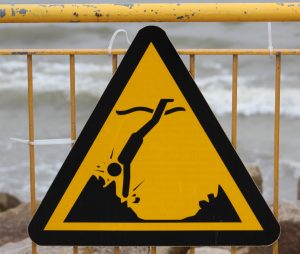Before You Write A Novel
Before you write a novel there are some questions you should ask yourself first. Deciding on your genre will determine your target audience and the general word count you should aim for. It can even impact which publishing options are the best fit for you as an author. Your earliest decisions can be the most defining ones you will make in your entire career. Therefore, a list of awesome links to read before you write a novel can help you dive in smoothly, swim swiftly and reach your true goals.

Since it frequently takes ten years of honing your craft to raise the quality of your work to the threshold for publication, it might be a while before you can get advice on these pivotal decisions from industry professionals, unless you seek it out. Therefore, why not do a bit of research and lay a few well considered plans to avert misfortune, reduce your toil and correct your career trajectory. There is no quick path to master this craft—but a map and a compass certainly helps avert being marooned at an unintended destination.

Where To Start
Here are some things to contemplate before you write a novel. Some of these links will take you to the websites of famous authors, others (in green) will take you to my personal musings on the subject. These articles pose many questions to ponder—and offer no perfect formula—but they may help you distill a different course of action than you would otherwise have taken. Writing a novel is a huge investment of time and effort—like any great endeavor it can benefit from deliberate decisions. Claim agency over your fate, decide what you want—make it happen. You’re setting out to be the architect of dreams—your own should be the first on the draft-table.

First Considerations
- Audience Analysis: Part One—By David Farland—Posted on MyStoryDoctor.com
- How Hollywood style “greenlight analysis” techniques can help you target the most receptive audience for the core emotional appeal of your genre.
- David Farland also teaches online and in-person seminars on writing.
- David Farland has written books on writing.
- Interested in David Farland’s novels? His “Courtship of Princess Leia” is one of my all time favorites.
- How Hollywood style “greenlight analysis” techniques can help you target the most receptive audience for the core emotional appeal of your genre.

- Writing the All-time Bestselling Novel—By David Farland—Posted on MyStoryDoctor.com
- If you secretly harbor ambitions of being the next J.K. Rowling, this article might give you some clues to get you started off on the right foot.

- Writing a Bestselling Series, Chapter 15: On Molding New Writers—By David Farland—Posted on MyStoryDoctor.com
- This article covers a lot of ground but touches on factors that contributed to the success of Stephanie Meyer.

- Neptune’s Sandbox I—The Sand You Want—By Maren True
- Genre is the sandbox you choose. The problem with laying your claim is that it does come to define you—and that can limit your future opportunities.

- Neptune’s Sandbox II—The Benefits of Being Boxed—By Maren True
- There are benefits to being boxed in a genre—benefits industry professionals know very well.

- Neptune’s Sandbox III—Opening Move (Your First Book)—By Maren True
- How to position your first book when you know you’re planning a career that crosses genre lines.

- Neptune’s Sandbox IV—Mid-Career Strategy—By Maren True
- If your first book is like your first move of a pawn in a game of chess, what is your mid-game strategy?

Preparation To Write
- 25 Things You Should Do Before Starting Your Next Novel—By Chuck Wendig—Posted on TerribleMinds.com
- So, its time to think about all the nitty-gritty things you need to nail down before your fingers start a percussive onslaught to draft chapter 1. Chuck Wendig is one of my go-tos for writing advice. His keen (and frequently profane) insight keys me up to rapidly attack the task at hand.
- Chuck Wendig has also has published numerous books on writing, in addition to novels, and a host of other interesting things like screenplays and short fiction.
- So, its time to think about all the nitty-gritty things you need to nail down before your fingers start a percussive onslaught to draft chapter 1. Chuck Wendig is one of my go-tos for writing advice. His keen (and frequently profane) insight keys me up to rapidly attack the task at hand.

Now, if you have a plan, you’re ready to jump off that cliff and into writing. Further questions will arise, but that’s what research is for. Feel free to revisit A Codex Index as you travel your own writing path—to look for guidance, or just a friendly motivating voice. Writers are introverts, but we walk this solitary path together—through our writing about writing.



